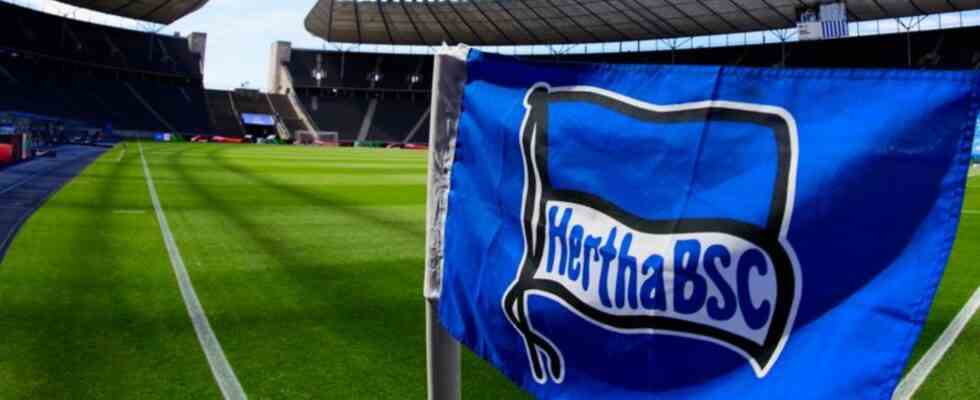Bundesliga
Expert: Hertha and Windhorst “damned to work together”
A corner flag with the Hertha logo in the Berlin Olympic Stadium. photo
© Soeren Stache/dpa-Zentralbild/dpa
Lars Windhorst wants to get rid of his shares in Hertha BSC and end the cooperation. Will a buyer be found? An expert is very skeptical.
According to economist Henning Zülch, Hertha BSC and investor Lars Windhorst will not separate so quickly.
“In the end it will be like this, no matter what happened: the two are doomed to work together because of the constellation. Selling the shares is almost impossible,” Zülch told the German Press Agency. “Hertha BSC will not find a buyer at this price for these shares,” said the professor of accounting and auditing at the HHL Leipzig Graduate School of Management.
Windhorst offers the club to buy back its shares
“While there are prospects who are interested in clubs, they would not pay that high price and would not pay a price for a 64 percent investment without gaining majority voting rights and control.” That is the special feature that exists in German football due to the 50+1 rule.
Windhorst, who joined Hertha in 2019, had offered the Bundesliga club to buy back its shares on Wednesday in a dispute over an alleged campaign by an Israeli security company – for the purchase price of 374 million euros at the time. The club then offered Windhorst’s tennor group assistance in finding a buyer. “There was certainly a lot of imagination in the valuation of 374 million,” said Zülch.
In the end, both sides would lose. “The biggest loser is Mr. Windhorst. He won’t get his money back, he can’t do anything, his hands are tied,” said the 49-year-old, who researches management in sports, among other things. The influence of the investor in the operative business is extremely limited. “Hertha BSC can sit back and relax, but the club is extremely uneasy, which will certainly have an impact on sporting success.”
Zülch: “Which investor should do that to themselves?”
In addition, it is questionable how the capital club intends to meet future payment obligations if Windhorst does not provide fresh money. According to Zülch’s assessment, the shares would have to be reassessed before a sale, and both sides would have to agree to the sale. The public playing out of the conflict contributes to the depreciation. “Which investor should do that to themselves? Who should go in there with their image and their money and believe in a positive sporting and economic future for this club?” said Zülch.
The background to the dispute is explosive media reports that the investor is said to have hired an Israeli agency to force then-President Werner Gegenbauer out of office. Windhorst dismissed this as nonsense.

